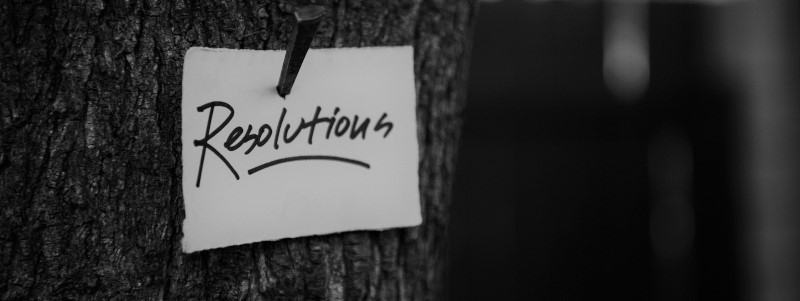In my last blog I wrote about goals for change and linking these to our values. When someone decides to come into therapy it is often because they would like to make changes and it can help to set goals as a means of knowing when these changes have been achieved.
Given this is a time of year when we might have made New Year’s resolutions it seems quite fitting to talk a little more about setting ourselves goals for change. It is often the case that at the start of the year we have all these wonderful ideas of what we want to achieve and we start off really motivated with all good intentions and then several months in we start to lose heart and give up.
A common goal at this time of year is dry January and this can quite often be successful because its time limited. We know that after a month we can return to our favourite tipple. However, for some this is difficult. Complete abstinence can be too challenging as it’s very all or nothing. It might be more helpful to consider cutting down and reducing frequency, e.g. limit to just one drink once or twice a week. In this way we can make the goal more achievable. Making our goals for change realistic and time limited is really important for achievement.
Another common goal for this time of year is to get fit and start exercising. To start with when we are motivated it goes well. It’s the trying to keep it up that’s difficult. Part of the battle is finding what exercise you enjoy. There’s no point pushing yourself to do something you don’t like. Often when people think of exercise they think they have to do something cardio related. However, there are lots of low impact workouts that are good forms of exercise, such as walking, yoga and pilates. Whatever choice you make its important to start small and build up. It’s the achievement that helps to maintain the motivation. So the first week or two you might aim to exercise for 20 minutes twice a week and then the third week, 3 times per week. Once you have comfortably achieved the first goal you set another, building on the first to push yourself that little bit further. All the time holding in mind where you want to be and this is where it can be useful to link goals to your values. In this example it’s values around physical wellbeing, and of course exercise is also great for our mental health.
Losing weight or eating healthier is another very common goal for people to set themselves at this time of year. And again is another that can be difficult to maintain. So rather than push yourself to go on a really restrictive diet or to cut out entire food groups consider aiming for a ‘better’ diet. Try reducing unhealthy food groups, reducing treats, and swapping to more healthy options. It can be more helpful to aim to eat healthily for 75% of the time or to eat healthily in the week and let yourself indulge a little at weekends. Again, it’s about trying to set more realistic goals for yourself. For example if your norm is to eat half a packet of biscuits with your cup of tea to allow yourself just 2 biscuits rather than going for complete abstinence.
Thinking about setting the right goals is really important, and if you don’t achieve them, that’s okay. There’s no such thing as a failed goal. If you don’t achieve your goal then there is still useful information – ask yourself why wasn’t I able to achieve this? What got in the way? What is the learning from this? What can I do differently next time? Are there any supports available to me to assist in this? Often we don’t achieve our goals because they are too big and need to be broken down further.
None of this is rocket science but we all to easily forget the basics. We can impose high expectations on ourselves and then become disheartened when we don’t achieve them. Our self-critical voice kicks in and this can have a negative impact on our mood. Given the difficulties we are all facing its even more important to be kind to ourselves and realistic of what we can and can’t achieve.
Brighton and Hove Psychotherapy is a collective of experienced psychotherapists, psychologists and counsellors working with a range of client groups, including fellow therapists and health professionals. If you would like more information, or an informal discussion please get in touch. Online therapy is available.
